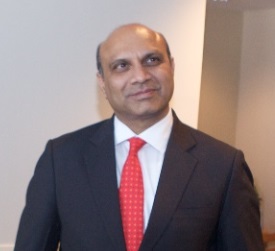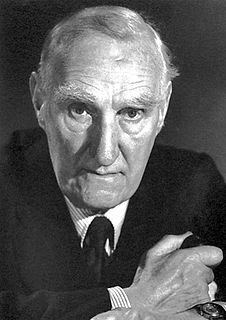A Quote by Thomas A. Edison
Problems in human engineering will receive during the coming years the same genius and attention which the nineteenth century gave to the more material forms of engineering.
We have laid good foundations for industrial prosperity, now we want to assure the happiness and growth of the workers through vocational education, vocational guidance, and wisely managed employment departments. A great field for industrial experimentation and statemanship is opening up.
Quote Topics
Assure
Attention
Century
Coming
Departments
Education
Employment
Engineering
Experimentation
Field
Forms
Foundations
Gave
Genius
Good
Great
Growth
Guidance
Happiness
Human
Industrial
Laid
Material
More
Nineteenth Century
Now
Opening
Opening Up
Problems
Prosperity
Receive
Same
Through
Up
Vocational
Vocational Education
Want
Which
Will
Wisely
Workers
Years
Related Quotes
At the moment I would like to emphasize the need for vocational training, for non-formal education in Burma to help all those young people who have suffered from a bad education. They have to be trained to earn their living. They have to have enough education vocational training to be able to set up respectable lives for themselves.
Shiv Nadar University has five schools with 16 departments offering 14 undergraduate, 10 master's and 13 doctoral programmes. The demand for engineering courses - computer science, engineering, electronics, communication engineering, mechanical engineering - is slightly on the higher side compared to other engineering courses.
Engineering is not merely knowing and being knowledgeable, like a walking encyclopedia; engineering is not merely analysis; engineering is not merely the possession of the capacity to get elegant solutions to non-existent engineering problems; engineering is practicing the art of the organizing forces of technological change ... Engineers operate at the interface between science and society.
What was the good of industrial development, what was the good of all the technological innovations, toil, and population movements if, after half a century of industrial growth, the condition of the masses was still just as miserable as before, and all lawmakers could do was prohibit factory labor by children under the age of eight?
Industrial Society is not merely one containing 'industry,' large-scale productive units capable of supplying man's material needs in a way which can eliminate poverty: it is also a society in which knowledge plays a part wholly different from that which it played in earlier social forms, and which indeed possesses a quite different type of knowledge. Modern science is inconceivable outside an industrial society: but modern industrial society is equally inconceivable without modern science. Roughly, science is the mode of cognition of industrial society, and industry is the ecology of science.
Capitalism with near-full employment was an impressive spectacle. But a growth in wealth is not at all the same thing as reducing poverty. A universal paean was raised in praise of growth. Growth was going to solve all problems. No need to bother about poverty. Growth will lift up the bottom and poverty will disappear without any need to pay attention to it. The economists, who should have known better, fell in with the same cry.





































